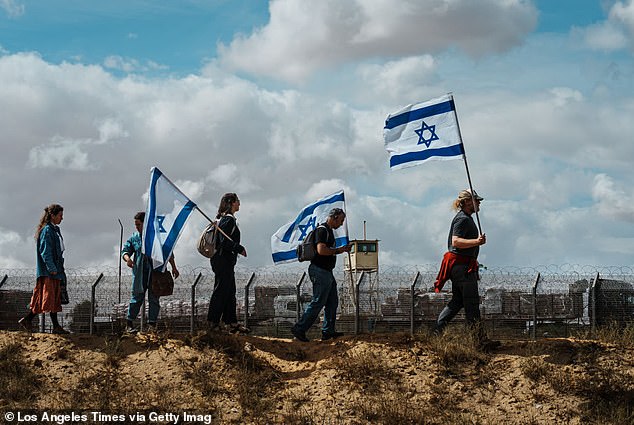Israeli settlers established a record number of illegal settlements in the West Bank last year, as violence in the occupied territory escalates.
There are currently at least 196, of which 29 appeared last year in flagrant violation of UN resolutions and international law, according to a BBC analysis.
While settlements require planning permission, there is no official data for these more nebulous groups of dwellings that have no boundaries.
But satellite imagery and open source data, including social media posts and local news sources, show a huge proliferation of these clusters of homes and farms.
Internal documents also suggest that organisations with close ties to the Israeli government have provided money and use of land to establish them, the BBC World Service reported.
Israeli settlers established a record number of illegal settlements in the West Bank last year, as violence in the occupied territory escalates.
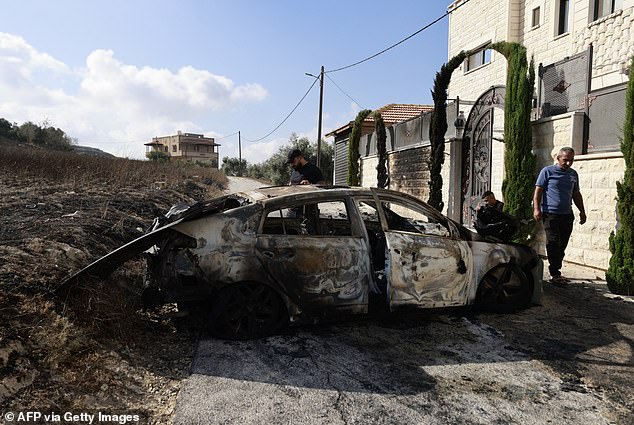
People check a burnt car a day after an attack by Jewish settlers in the village of Jit, near Nablus in the occupied West Bank, which left a 23-year-old man dead and others with serious gunshot wounds, on August 16, 2024.
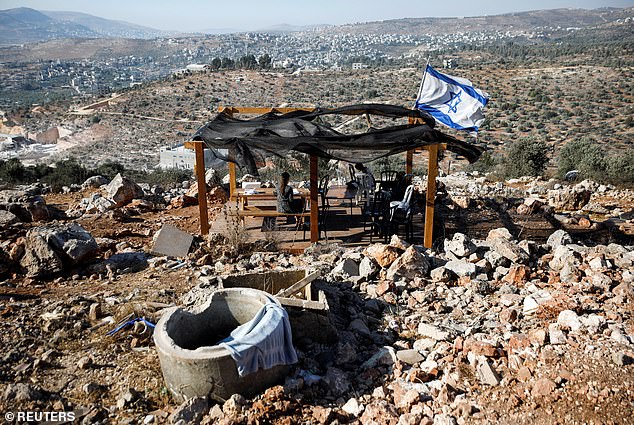
There are now at least 196, including 29 last year in flagrant violation of UN resolutions and international law, according to a BBC analysis.
Palestinians have warned of increasing attacks by armed settlers who they say are often backed by the military and forcibly expel them from their homes.
More than 500 people have been killed in the territory since October 7. While the vast majority of deaths occurred in Israeli anti-terrorist raids, at least 20 people were reportedly killed by settlers.
Avi Mizrahi, a former Israeli army commander in the West Bank, said the outposts were exacerbating tensions.
“Whenever illegal settlements are established in an area, it creates tensions with the Palestinians… who live in the same area,” he told the BBC.
Earlier this year, the British government sanctioned eight extremist settlers for inciting or perpetrating violence against Palestinians. At least six of them had established illegal settlements or were living in them.
Among them was Moshe Sharvit, accused of threatening Palestinians at gunpoint and ordering them to leave their homes.
Grandmother Ayesha Shtayyeh said the man told her to leave the place she had called home for 50 years and pointed a gun at her.
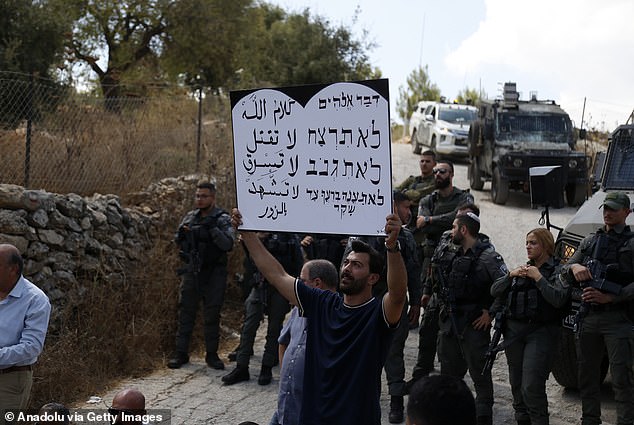
A group of activists holding banners stage a protest in the Makhror area against the forced displacement of Palestinians and the demolition of their homes by Israeli forces on September 3, 2024.
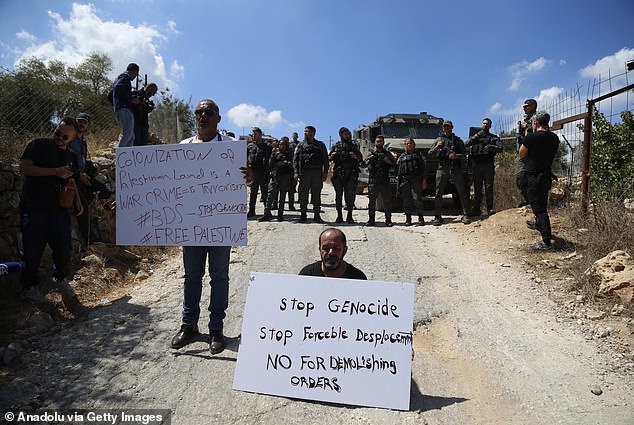
Palestinians have warned of increasing attacks by armed settlers who they say are often backed by the military and forcibly expel them from their homes.
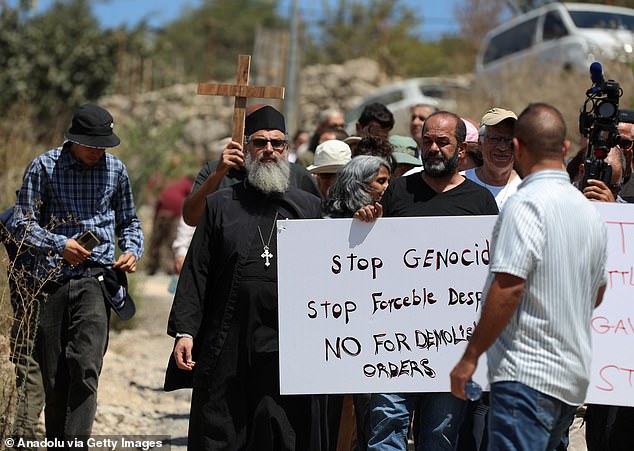
More than 500 people have been killed in the territory since October 7.
“He has made our lives hell,” she said, after being forced to move to a village near Nablus with her son.
Sharvit began a campaign of harassment and intimidation almost as soon as he set up his outpost in late 2021, Shtayyeh says.
When her husband, Nabil, was grazing his goats on the pasture he had used for decades, Sharvit rushed there in a truck full of settlers who were chasing away the animals.
Nabil said: “I told him that we would leave if the government, the police or the judge ordered us to. He replied: ‘I am the government, I am the judge and I am the police.’”
Outposts lack any official Israeli planning approval, unlike settlements, which are larger, typically urban Jewish enclaves built throughout the West Bank and legal under Israeli law.
Both are considered illegal under international law, which prohibits the transfer of civilians into occupied territory.
The UN’s top court ruled last July that Israel must halt all new settlement activity and evacuate settlements in the Occupied Palestinian Territory.
But Israel rejected the view as “fundamentally wrong” and one-sided and there is little evidence the government is cracking down on the outposts.
(tags to translate)dailymail

